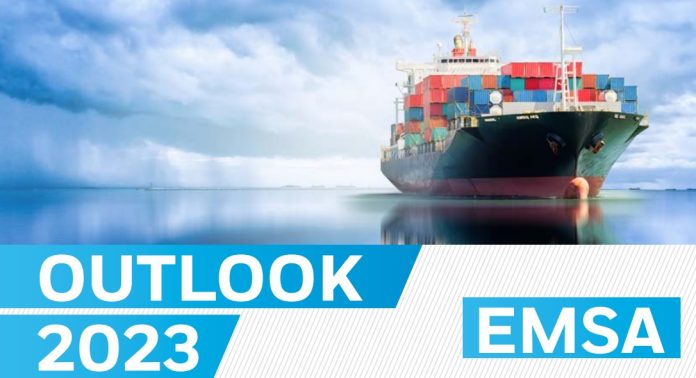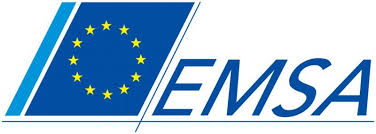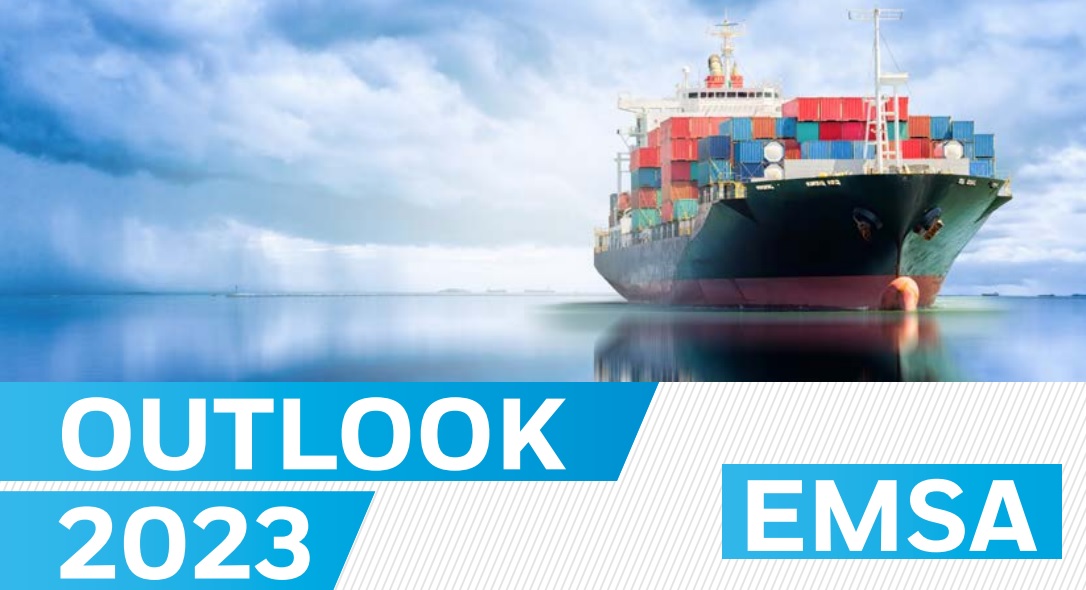
(www.MaritimeCyprus.com) The EMSA Outlook 2023 publication presents the main steps the Agency plans to take in the upcoming year to deliver its annual work programme in line with the multi-annual strategic objectives and based on the information contained in the Single Programming Document (2023-2025) as adopted by EMSA’s Administrative Board.
The Agency’s activities have been broadly divided into seven thematic areas with the four key areas of Sustainability, Safety & Security, Surveillance and Simplification, followed by the three cross-cutting areas of Digitalisation, Technical Assistance and Strategic Support.
This structure is reflected in the chapters of the publication, for which we share some
highlights below:
Sustainability:
With increasing urgency for action in the field of sustainability, EMSA will be providing
support in the implementation of the measures linked to the European Green Deal, such
as the ‘Fit for 55’ package which refers to the EU’s target of reducing net GHG emissions
by at least 55% by 2030. This package includes among others the FuelEU Maritime proposal, the extension of the EU Emissions Trading System to maritime transport and
the revision of the Alternative Fuels Infrastructure Regulation. EMSA will continue to work
alongside the European Commission to support any further initiatives of relevance for
greener shipping, including the EU Taxonomy for sustainable maritime financing.
Surveillance:
In the surveillance domain, national authorities performing coast guard functions in the Member States and EU Agencies will continue to benefit from the innovative maritime surveillance services EMSA has developed and will continue to develop. These complement surveillance capabilities achieved by more traditional means (terrestrial AIS, manned aircraft and patrol vessels).
Safety and Security:
Safety and security-related considerations remain high on the Agency’s agenda, particularly as the maritime sector faces increasing challenges and opportunities in these areas with the various transitions underway, including efforts towards zero-carbon fuels and the propulsion systems required to use them, and the drive towards digitisation and automation. EMSA will further study the safety risks posed by alternative fuels and will start to work on guidance for the safe use of these fuels together with stakeholders (addressing them one-by-one). The Agency will also finalise the work on the safe use of battery systems in maritime applications. The Agency will also assign new studies with a focus on key safety issues and pursue the follow-up to previous and ongoing studies.
Simplification:
EMSA supports greater simplification through a variety of digital services. Vessel and voyage-related data is shared among targeted users across the EU via the SafeSeaNet system whose information flows and system functionalities are designed to boost the efficiency of maritime traffic and transport. In 2023, EMSA will continue to develop and improve SafeSeaNet to support new and revised EU legislation.
Digitalisation:
Integrated Maritime Services (IMS) will continue to be enhanced with additional customised features, functionalities, data sets and individual services in line with the evolving requirements of the growing user communities. The main improvements will focus on user interfaces (SEG – SafeSeaNet Ecosystem Graphical User Interface and the IMS Mobile App), as well as the System-To-System (S2S) interfaces for the provision of specific services to the national systems. The IMS will continue providing Automated Behaviour Monitoring - ABM services, based on algorithms analysing vessel position reports for the detection of abnormal and/or specific behaviours.
Technical Assistance:
EMSA’s visits and inspections continue to be a key tool to improving maritime safety, security and sustainability, through the identification of strengths and weaknesses in the implementation of EU law. Combined with the horizontal analyses carried out on the findings established during the visits, the Member States and the European Commission gain a clear picture of where additional effort would be beneficial or changes to EU law may be desirable.
Strategic Support:
In 2023, EMSA will continue the work on European cooperation on coast guard functions, jointly with EFCA, Frontex and the national authorities from across the EU. EMSA’s tasks under the annual strategic plan will include: information sharing; surveillance and communication services; capacity building; risk analysis; and capacity sharing. As current chair of the Tripartite Working Arrangement, EMSA will hold the joint Annual European Coast Guard Event in 2023 which serves as a platform for national authorities, the EU agencies involved and the European Commission to exchange views on matters related to cooperation on coast guard functions.
For more interesting details, you can download the full report "EMSA Outlook 2023" by clicking below:
Source: EMSA















